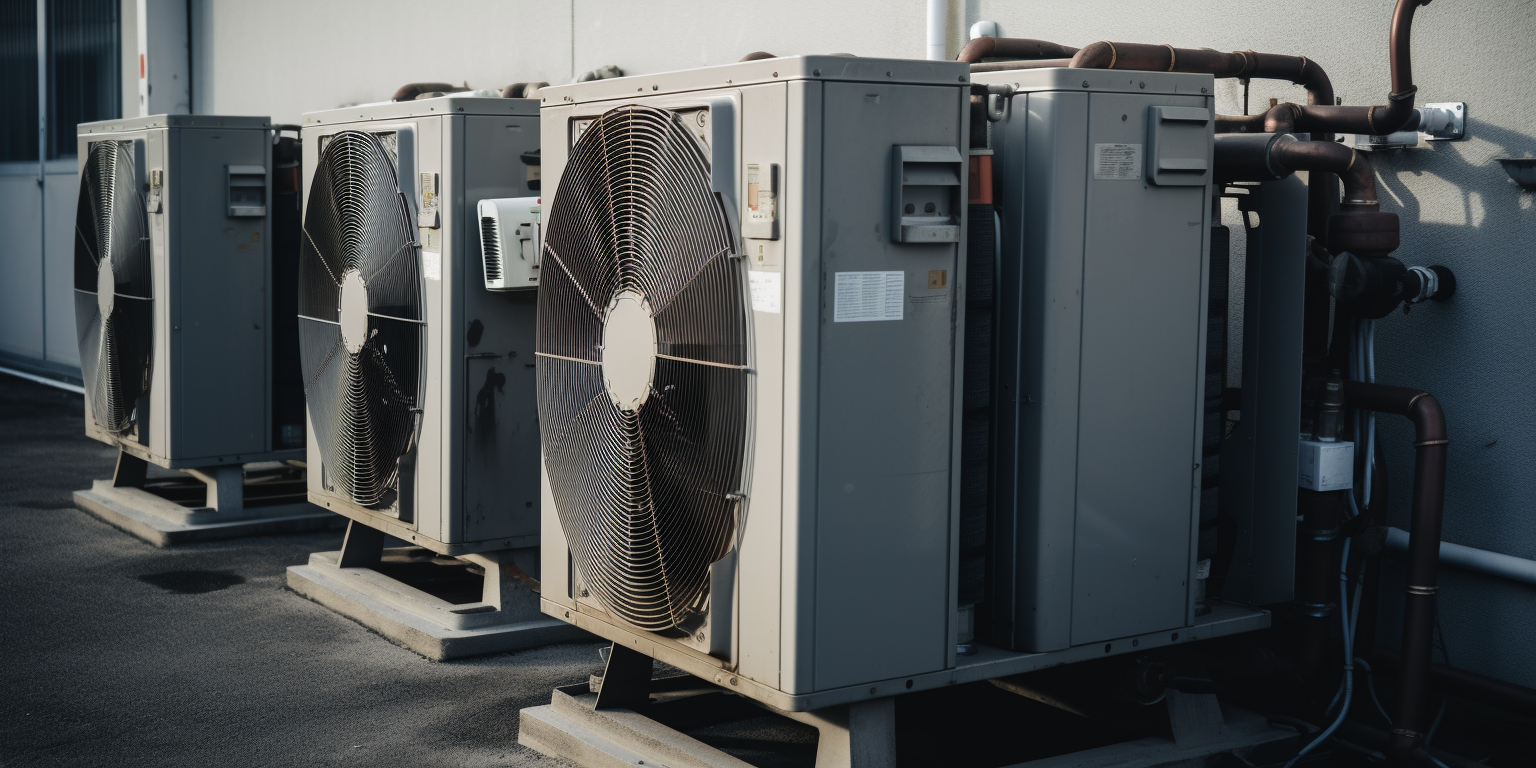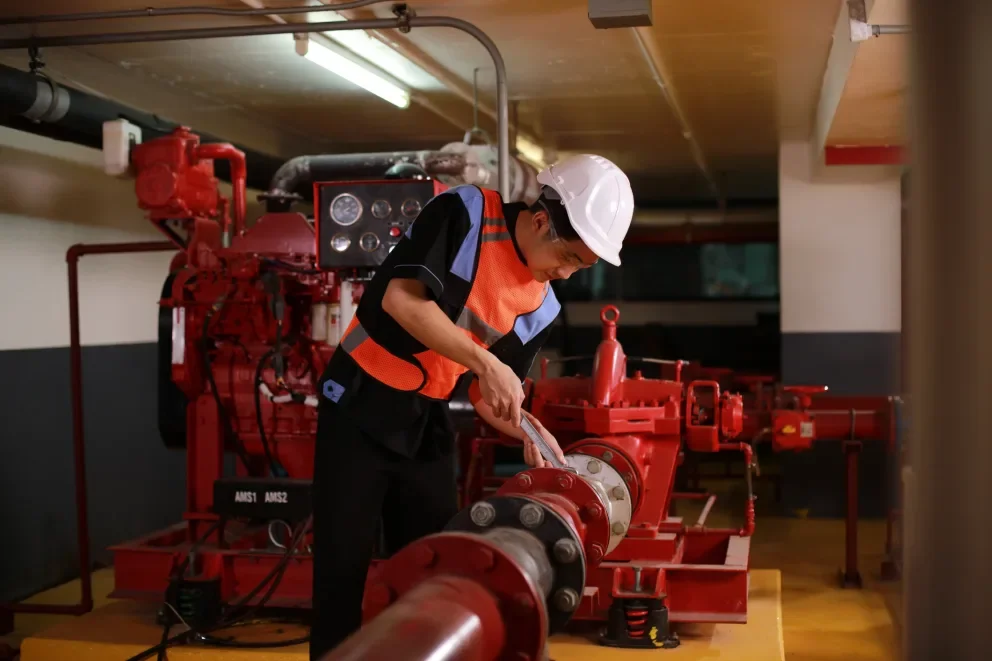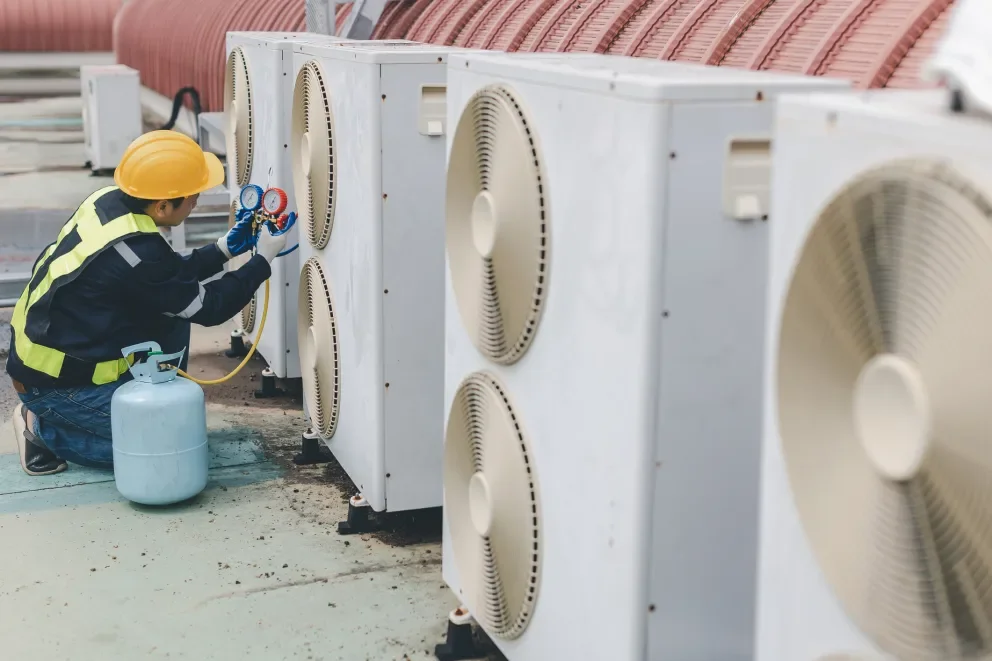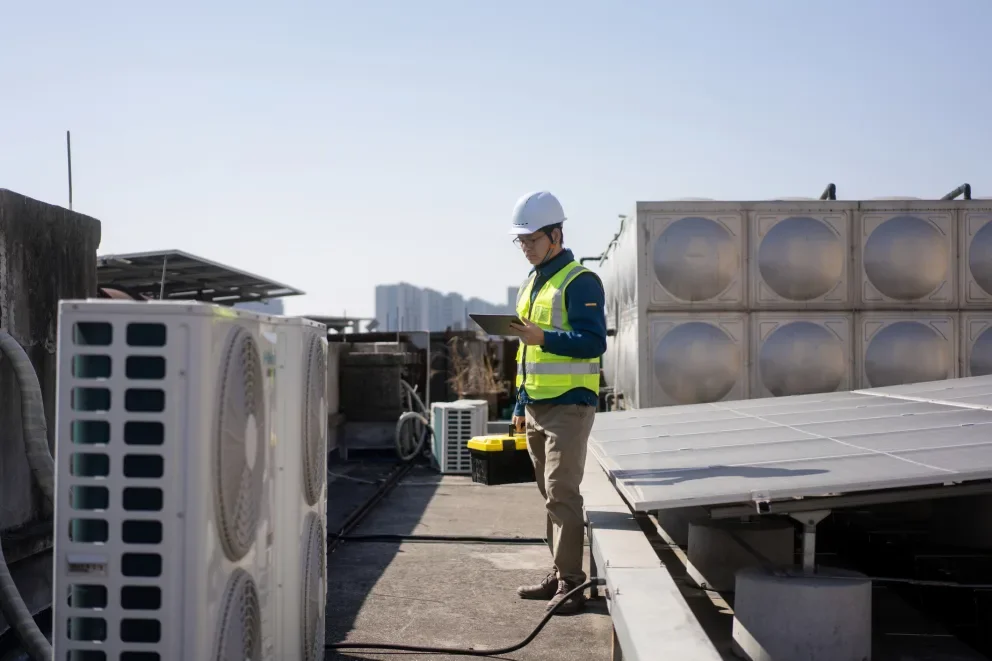Refrigeration systems utilize a variety of compressors, each offering unique features and advantages. Let’s dive into the three main types: reciprocating, scroll, and screw compressors.
Firstly, Reciprocating compressors, often described as the workhorses of the refrigeration world, boast of durability and efficiency. They use a piston within a cylinder to compress the refrigerant, and their design allows for easy maintenance and repair.
Next in line, we have Scroll compressors. They work by using two spiral-shaped scroll pieces. One scroll remains stationary while the other orbits around it, compressing the refrigerant in the process. The primary advantage of such compressors is their quiet operation and higher efficiency, especially in small to medium-sized systems.
Lastly, let’s discuss Screw compressors. These powerhouses are perfect for large-scale refrigeration systems. They compress the refrigerant using two interlocking screws, known for their high capacity, reliability, and impressive performance under constant use.
Choosing the right compressor type depends on several factors such as the scale of the refrigeration system, efficiency requirements, noise tolerance, and maintenance capabilities. Understanding each type can help in making an informed decision tailored to your specific needs.
How does the choice of compressor type impact the efficiency of a refrigeration system?
The choice of compressor type significantly influences the efficiency of an industrial or commercial refrigeration system. Let’s consider two primary types – Reciprocating and Screw compressors.
Reciprocating compressors, also known as piston compressors, are a popular choice because of their high efficiency. They operate in a simple manner: as the piston moves within the cylinder, it compresses the refrigerant, which is then released to the condenser. This simple mechanism means less energy loss, and consequently, higher efficiency. However, the downside is that they require regular maintenance due to their numerous moving parts.
On the other hand, we have screw compressors. These compressors work by trapping the refrigerant between two meshed rotors and compressing it as the rotors revolve. Their design makes them robust, capable of handling high cooling capacities, and needing less maintenance than reciprocating compressors. However, their efficiency can be slightly lower, particularly at partial loads which are common in many commercial applications.
In a nutshell, your choice between a reciprocating or screw compressor depends on your specific needs. If you’re looking for high efficiency and don’t mind regular maintenance, a reciprocating compressor might be your best bet. But if you prioritize durability and low maintenance, a screw compressor may be more suitable. Remember, the compressor is a key component of a refrigeration system, and the right choice can significantly boost your system’s overall efficiency.
What are the key considerations when choosing a compressor for a refrigeration system?
When choosing a compressor for a commercial or industrial refrigeration system, several key factors come into play. First and foremost, consider the type of refrigerant used in the system. Different compressors handle different refrigerants, so it’s essential to match the compressor type with the refrigerant.
Secondly, consider the capacity of the compressor. This refers to the amount of refrigerant that the compressor can pump per unit of time. Make sure your compressor has a sufficient capacity to fulfill your cooling needs.
Third, look at efficiency. A more efficient compressor will use less energy to provide the same cooling effect, saving on your energy bills and reducing your environmental footprint.
Next, consider the operating conditions. Compressors are designed to work best under certain conditions, so you’ll need to take into account factors like the ambient temperature and the temperature of the space you’re cooling.
Lastly, think about the maintenance requirements of the compressor. Some compressor types may require more frequent maintenance, which can increase the total cost of ownership.
When selecting a compressor for a refrigeration system, it’s crucial to consider the type of refrigerant used, the compressor’s capacity and efficiency, the operating conditions, and the maintenance requirements. By carefully considering these factors, you can choose a compressor that will be a perfect fit for your refrigeration system.
How does the compressor type affect the refrigeration cycle and overall energy consumption?
The compressor, often known as the ‘heart’ of the refrigeration system, is a crucial component that significantly impacts the refrigeration cycle and overall energy consumption. Two primary types of compressors used in industrial and commercial refrigeration are reciprocating and screw compressors.
A reciprocating compressor operates by a back-and-forth movement of a piston within a cylinder. This type is notably energy-efficient during full load operation but tends to consume more energy at partial loads. Its efficiency can be affected by factors such as pressure ratio, discharge temperature, and refrigerant type.
On the other hand, screw compressors, which use two intermeshing screws, excel in applications that require high cooling capacity. They offer superior part-load efficiency, meaning they maintain higher levels of energy efficiency even when the system is not operating at full capacity. This quality makes them a popular choice for large-scale industrial and commercial refrigeration where demand can fluctuate.
Choosing the right compressor type can make a significant difference in the system’s overall energy consumption. For instance, a system using a screw compressor may consume less energy in situations where the refrigeration load frequently varies. Meanwhile, a reciprocating compressor might be more suitable for systems that consistently run at full capacity.
Understanding the operational characteristics of different compressor types is vital for achieving optimal energy efficiency in industrial and commercial refrigeration systems. By matching the compressor type with the specific cooling requirements and load variability, you can ensure a more energy-efficient refrigeration cycle.
Tips on maintaining and troubleshooting common issues with refrigeration compressors
Maintaining and troubleshooting your refrigeration compressors is an essential part of ensuring the longevity and efficiency of your cooling systems. Regular Monitoring is the first step towards preventive care. Keep an eye out for any unusual noises, vibrations, or a sudden increase in energy usage, as these may indicate problems.
Adequate Lubrication is a must to keep the compressor’s moving parts running smoothly. Regularly check the oil level and change it as per the manufacturer’s instructions. Remember, using the wrong type or grade of oil can harm your compressor!
Clean Filters Regularly to ensure optimal airflow and efficient operation. A dirty, clogged filter can increase energy consumption and strain the compressor.
Check for Leaks as these can be a significant contributor to compressor problems. Use a leak detection system for large commercial or industrial refrigeration units.
Proper Refrigerant Charge is crucial for the compressor’s performance. Too much or too little refrigerant can lead to compressor failure. Always maintain the correct refrigerant level.
For Troubleshooting Common Compressor Issues, if you’re facing issues like the compressor not starting, check the power supply, wiring, and control board. It could also be due to a bad start capacitor.
If the compressor is running but not cooling, check for proper refrigerant levels and ensure that the evaporator and condenser coils are clean and functioning properly.
If your compressor is overheating, it might be due to a blocked or dirty condenser, inadequate ventilation, or low refrigerant.
In all situations, remember that the help of a professional might be needed, especially for complex or persistent issues. Regular maintenance and early detection of issues can save you from costly repairs and downtime!
What are the latest trends or advancements in refrigeration compressor technology?
In the realm of industrial and commercial refrigeration, compressor technology has been experiencing several noteworthy advancements. There’s a surge in the use of scroll compressors, known for their efficiency and reliability, primarily due to fewer moving parts, reduced maintenance demands, and less noise production. They operate with a spiral mechanism that minimizes energy loss, thereby maximizing efficiency.
Perhaps one of the key trends in compressor technology is the shift towards variable speed compressors. These innovative units are designed to adjust their speed based on the cooling demand, leading to significant energy savings and enhanced temperature control. This dynamic performance makes them a popular choice for various industrial and commercial applications.
Another exciting development is the advent of digital compressors. Leveraging the power of digitization, these compressors enable precise control over refrigeration systems, contributing to improved efficiency and optimized performance. They utilize advanced sensors and control algorithms to automatically adjust to changes in cooling requirements.
Lastly, eco-friendly compressors are gaining momentum in the market. These compressor types, such as CO2 transcritical compressors, are not only energy-efficient but also use natural refrigerants, reducing the environmental impact of refrigeration systems. They signify a step towards sustainable refrigeration, aligning with global efforts to mitigate climate change.
The realm of refrigeration compressors is witnessing transformative advancements, each promising improved efficiency, flexibility, control, and sustainability. As these trends continue to evolve, the future of industrial and commercial refrigeration looks brighter and more energy-efficient than ever before.
How can software aid the maintenance of compressors?
Software solutions are transforming the way we manage and maintain compressors in industrial and commercial refrigeration. These digital tools enable timely detection of potential compressor faults, significantly reducing downtime and enhancing system efficiency.
Through continuous monitoring, software programs can track and record vital parameters, such as temperature, pressure, vibration levels, and oil composition, of different compressor types. Any deviations from the norm are flagged immediately, prompting swift corrective action. This proactive approach saves valuable time and resources by averting catastrophic failures.
Furthermore, predictive maintenance software uses machine learning algorithms to anticipate and prevent future issues. By analyzing historical and real-time data from the compressors, these intelligent systems can accurately forecast potential breakdowns and suggest preventive measures.
The use of software also promotes efficient energy use, a crucial aspect of refrigeration systems. They help optimize compressor operations by adjusting parameters based on load requirements and external conditions. This way, unnecessary energy consumption and system wear can be significantly reduced.
Lastly, software solutions offer detailed record-keeping and reporting capabilities. It serves as a central repository of all compressor-related data, facilitating transparency and informed decision-making. Plus, through intuitive dashboards, technicians can swiftly understand the system’s performance and take action accordingly.
Software programs bring about a preventative and predictive approach to compressor maintenance in commercial and industrial refrigeration. They streamline operations, improve energy efficiency, and allow for timely intervention, ensuring longevity and optimal performance of the compressors.
Key Takeaways:
- Regular maintenance, including checking for leaks and ensuring proper refrigerant charge, is crucial for the optimal performance of refrigeration compressors.
- Troubleshooting common compressor issues might require professional help, especially for complex or persistent problems.
- The latest trends in refrigeration compressor technology include the use of scroll compressors, variable-speed compressors, digital compressors, and eco-friendly compressors.
- Software solutions can significantly enhance the management and maintenance of compressors. Key benefits include timely fault detection, predictive maintenance capabilities, energy optimization, and comprehensive record-keeping.



